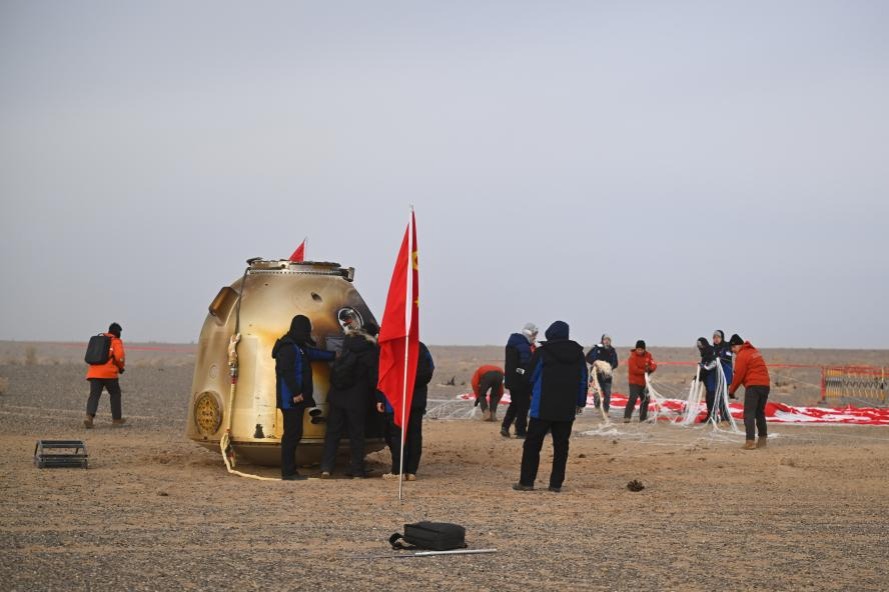Global South needs a better deal
Dangling the carrot on an expanded UNSC is too small a token to address the multi-dimensional imbalance in favor of the Global North

Dangling the carrot on an expanded UNSC is too small a token to address the multi-dimensional imbalance in favor of the Global North

As the reigning hegemon is reeling from its "anguish of displacement "in the wake of its waning primacy, the world has bifurcated into the West and non-West ideological camps, much to the detriment of international cooperation in the face of multiple existential challenges. The growing drumbeats of geopolitical conflicts have virtually drowned the key concerns of the day for humanity.
The rising belligerence is edging the world to the brink of a catastrophic Armageddon. No amount of political euphemism and semantics can ever conceal the hard reality that the post-World War II global order is now at stake and global governance in disarray.
The developing Global South, having unshackled itself from its past colonialism, is now bearing the full brunt of the multiple existential threats. Many of the Global South countries in Asia, Africa and Latin America remain mired in the quandary of various insecurities.
Generally, the Global South is known to be blessed with abundance of resources. Nonetheless large parts of the South remain poor and relatively underdeveloped as resources are still largely in the grip of proxies backed by their past colonial masters. Economic sovereignty remains a distant dream for many of these newly independent states after World War II. At the same time, neither have they been truly allowed to exercise their desired political sovereignty.
Governance of these young nations continues to be mired in political instability which in many cases erupts into crisis and conflicts, turning the countries into war-prone areas, while economic development is taking a back seat. The last decade marked an era of ordeal for many of these politically unstable countries in the South. Crisis after crisis of military conflicts puppeteered by the Military-Industrial Complex, in addition to the double whammies of climate change and global health emergency, made the perfect storm in impoverishing many of such emerging economies in the South.
By and large, sustainable development is rendered less sustainable. The key pillar initiative of extreme poverty reduction, underscored in the 2030 United Nations Sustainable Development Agenda, has been facing a noticeable backslide since 2017. The daunting task of controlling the global extreme poverty rate below 3 percent by 2030 is getting increasingly beyond reach in the wake of such headwinds of exigencies.
The gloomy scenario is evidenced in the "Poverty and Shared Prosperity 2020 Report "which reports that more than 40 percent of the hard core poor are scattered within war zones. The World Bank report further reveals the sharp rise of abject poverty by twofolds in West Asia and Northern Africa in 2015-18, following the military conflicts in Syria and Yemen, which led to humanitarian disasters there.
This mayhem is certainly not the first nor will it be the last humanitarian disaster. It reminds us of the tragic and massive suffering in Iraq when the country was invaded by the United States in 2003, and the pervasive famine in Afghanistan in 2022 following the fall of Kabul after 20 years of occupation by US troops.
Time and again, mayhem has been perpetrated in Asia to serve the selfish geopolitical interest of powers from outside the region. And without fail, the Global South countries have consistently been made the targets of aggression under the prevailing order, albeit the rhetoric of "rules-based order" continues to ring aloud.
The crunch in realizing the United Nations 2030 Sustainable Development Agenda is getting even more acute with the global warming-induced fallout set to push the poverty figures up by 68 million till 2030.The sub-Saharan region and South Asian countries are identified as the key areas to bear the brunt. Again, the Global South is not spared the throes of climate change.
Be that as it may, the Global South has never ceased to be scapegoated for excessive carbon emissions and environmental degradation purportedly caused by their pursuit of economic development through industrialization.
Yet, on the other hand, many rich nations remain recalcitrant in not fulfilling their monetary pledge at the United Nations Climate Change Conference of the Parties, thus leaving the multilateral international cooperation in addressing climate change in the lurch. Vulnerable nations, notably those of the Global South, are again deprived of the monetary resources needed to mitigate the impacts of climate change where extreme weather has resulted in crop failures and the consequential food insecurity.
While the world at large upholds the principle of human rights in global governance, the primordial existential rights of humanity must first be given due priority. The right to sustainable development in a peaceful environment is particularly significant to the developing Global South, which has been pursuing the respective trajectory of nation building and governance.
People's aspiration and choices from the South must be accorded due respect, though at times it may not be consistent with the interests pursued by the West. Their voices and priorities must be duly heard and granted due cognizance in global governance.
Multipolarity characterized by the emergence of new centers of power is now the dominating paradigm on the world stage. The Global South has every right not to be used as a pawn by any contesting power in the geopolitical rivalry.
The dire needs of the Global South in sustainable development and an inclusive global governance under the command of a cohesive United Nations should never be taken for granted and addressed by sheer lip service or tokenism borne out of political expediency.
The reigning hegemon must learn to accept the hard facts that the West-centric global order can no longer meet the rising expectations and aspirations worldwide. Structural reform of the world body is absolutely necessary to rectify the present underrepresentation of the Global South. Nonetheless, the carrot dangled by the Joe Biden administration in calling for an expansion of the United Nations Security Council is simply too small a token to address the current scale of multi-dimensional imbalance in favor of the Global North.
The pledge to increase the seats of permanent and non-permanent members on the Security Council may appear appealing to certain countries in the Global South. But such a charm offensive-like engagement is no more than a reactive move of expediency serving the interest of the US' great power rivalry.
Learning from past experience, the Global South should by now be seasoned and mature enough not to be enmeshed again in a geopolitical power play. All in all, what the Global South has been yearning for all these years is nothing more than an egalitarian and inclusive international order where their concerns can be addressed even-handedly. After all, both the Global North and Global South alike have a shared future and intertwined interest on this planet that is home to the humanity.
The author is chairman of the Belt and Road Initiative Caucus for the Asia-Pacific and a senior fellow of the Taihe Institute, China. The author contributed this article to China Watch, a think tank powered by China Daily.
Contact the editor at editor@chinawatch.cn.































